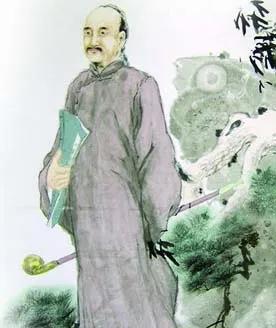Chinese name: Ji Yun

Aliases: Ji Xiaolan, a word Chunfan, the late number Shi Yun
Nationality: Qing Dynasty
Nationality: Han
Birthplace: Cui Erzhuang, Xianxian County, Hejian Province (belonging to Cangxian County, Hebei)
Date of birth: June, 1724
Died: February 1805
Occupation: Writer, official
Main Achievements: Editor-in-Chief of the Four Libraries
Representative works: "Notes on Reading Wei Caotang"
Place of origin: Shangyuan County, Ying Tianfu
Nickname: Wenda
Ji Xiaolan - a famous scholar and political figure during the Qianlong period
Born into a family of eunuchs, his father Ji Rongshu was a famous examiner who served as a Beijing official. Ji Yun has been brilliant since childhood, and is known as a "prodigy".
In the twelfth year (1747) of Emperor Gaozong of the Qing Dynasty, he tried to solve the yuan in the township, and in the nineteenth year of Qianlong (1754), he was elected as a Shujishi of the Hanlin Academy. Scattered library to teach editing, moved to the left Chunfang Zuo Shuzi. After Jingcha, he was appointed as the prefect of Duyun Province, Guizhou. Because the Qianlong Emperor appreciated his knowledge, he added four titles and remained as a shuzi. Soon, he was a bachelor's degree attendant at Shenghanlin Academy.
In the thirty-third year of Qianlong (1768), he was sent to Urumqi, Xinjiang, for being involved in the yanzheng deficit case for sending a message to his relative Lu Jianzeng[1], and actively communicated with the locals along the way, saying "As I heard", wrote a lot of works, and later compiled them into a volume, that is, the famous "Notes on Reading Wei Caotang". Ji Yun's opposition to the science of science is reflected quite profoundly in the Notes on Reading Wei Caotang and the Compendium of the General Catalogue of the Four Libraries.
Two years later, due to the Qianlong Emperor's need to revise books, Liu Tongxun recommended him and recalled him from Xinjiang, and from the thirty-eighth year of Qianlong (1773), he served as the chief compiler of the "Four Libraries quanshu" library, receiving 3,503 kinds of books, a total of 79,337 volumes; and revised the "Outline of the General Catalogue of the Siku Quanshu" and "Rehe Zhi". He successively served as Editor, Zuo Shuzi, Bingbu Shilang, Zuo Du Yushi, Rebbe Shilang, and Shangshu.